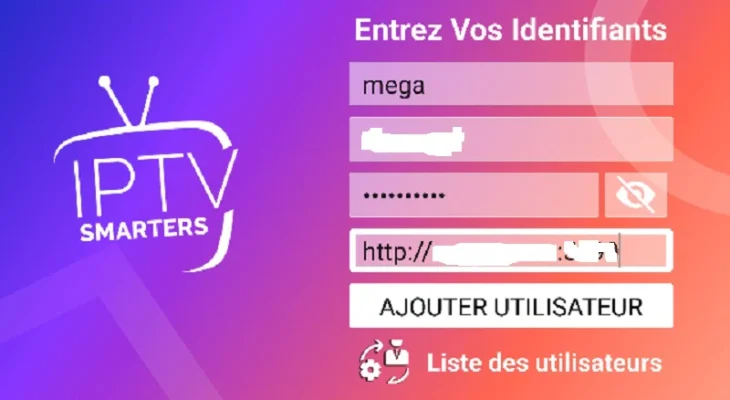In an age where traditional cable and satellite television are losing their dominance, Code IPTV (Internet Protocol Television) has emerged as a popular alternative for consuming television content. This article explores the nuances of IPTV, its advantages, challenges, and why it is considered the future of television.
What is IPTV?
IPTV stands for Internet Protocol Television, which refers to the delivery of television content over the internet, rather than through traditional terrestrial, satellite, or cable formats. IPTV works by transmitting video and audio data via internet protocols, allowing users to stream their favorite TV shows, movies, sports events, and more, all through an internet connection.
Unlike traditional TV services, where content is broadcasted through a fixed frequency or signal, IPTV uses a broadband internet connection to transmit media. Essentially, content is streamed and delivered in real-time over the internet. This on-demand service has revolutionized how people interact with television programming.
Types of IPTV Services
- Live TV Streaming: Just like traditional television, live IPTV services broadcast live programming, such as news, sports, and events. These services require a steady internet connection, but users can tune in to their favorite channels without the need for antennas or satellite dishes.
- Video on Demand (VOD): This service allows users to access a library of movies, TV shows, and other video content at any time. VOD is similar to services like Netflix, where users can choose what to watch from a catalog of available content.
- Time-Shifted TV: This feature allows viewers to watch programs at a later time, even if they missed the live broadcast. By recording shows or using catch-up services, IPTV users can enjoy content when it fits into their schedule.
- Interactive TV: Interactive IPTV services enable users to access additional features such as video calling, interactive advertising, social media integration, and more, giving a much more personalized viewing experience.
Benefits of IPTV
- High-Quality Content: One of the biggest advantages of IPTV is the ability to stream high-definition (HD) and even 4K content. The quality of the video and audio is typically superior to traditional cable services, thanks to the higher bandwidth and better compression technologies used in IPTV.
- Customizable Experience: IPTV offers viewers greater control over their viewing experience. Users can choose what content to watch, when to watch it, and even pause or rewind live broadcasts. The availability of catch-up TV ensures that users never miss a program.
- Affordable Pricing: With IPTV, users can often find subscription models that are more cost-effective than traditional cable services. Many IPTV providers offer various pricing tiers, allowing customers to select a plan that suits their viewing habits and budget.
- Accessibility Across Devices: IPTV content is accessible on a wide variety of devices. Whether you want to watch TV on your smart TV, computer, tablet, or smartphone, IPTV ensures that you can enjoy your favorite content anytime and anywhere.
- No Satellite Dish or Antenna Required: Unlike satellite TV, which requires a dish and specific hardware, IPTV only requires a stable internet connection. This makes it a more convenient and flexible option for viewers, especially those who live in areas where satellite signals may be weak or obstructed.
Challenges of IPTV
- Internet Dependency: The biggest drawback of IPTV is its reliance on a stable and fast internet connection. A slow or unreliable connection can lead to buffering, lagging, and poor video quality. Unlike cable TV, which doesn’t depend on internet speed, IPTV is vulnerable to internet issues.
- Content Licensing and Availability: While IPTV providers offer a wide range of content, licensing restrictions can limit access to certain channels or shows depending on your geographical location. This is often referred to as geo-blocking, and users may need to use VPN services to bypass these restrictions.
- Potential for Piracy: As with any internet-based service, IPTV is susceptible to piracy. Some illegal IPTV providers offer subscription-based access to content without proper licensing, which can lead to both legal and security risks for users.
- Technical Issues and Support: IPTV services, especially those that are not mainstream, may face technical difficulties or lack adequate customer support. For non-tech-savvy users, troubleshooting connectivity or device compatibility issues can be frustrating.
The Future of IPTV
Despite its challenges, the future of IPTV looks promising. With advancements in internet speeds, streaming technology, and content distribution, IPTV is expected to continue growing in popularity. The integration of 5G technology, for instance, will enable faster and more reliable streaming experiences, especially for mobile users. Additionally, partnerships between content creators and IPTV providers will likely expand the availability of exclusive content, further driving the demand for IPTV services.
Furthermore, IPTV is expected to continue evolving into a more interactive and personalized platform, offering features such as voice control, AI-driven recommendations, and integration with smart home devices. As consumers increasingly demand more flexibility and on-demand access to content, IPTV stands ready to meet these expectations.
Conclusion
IPTV represents a significant shift in how we consume television and video content. By providing high-quality, on-demand, and interactive services, IPTV has become an attractive alternative to traditional TV. As internet speeds improve and technology continues to advance, IPTV is poised to become the go-to platform for entertainment, offering a customizable and flexible viewing experience for users across the globe. Whether you’re looking to cut the cord from cable or seeking a more diverse range of content, IPTV may just be the future of television.

